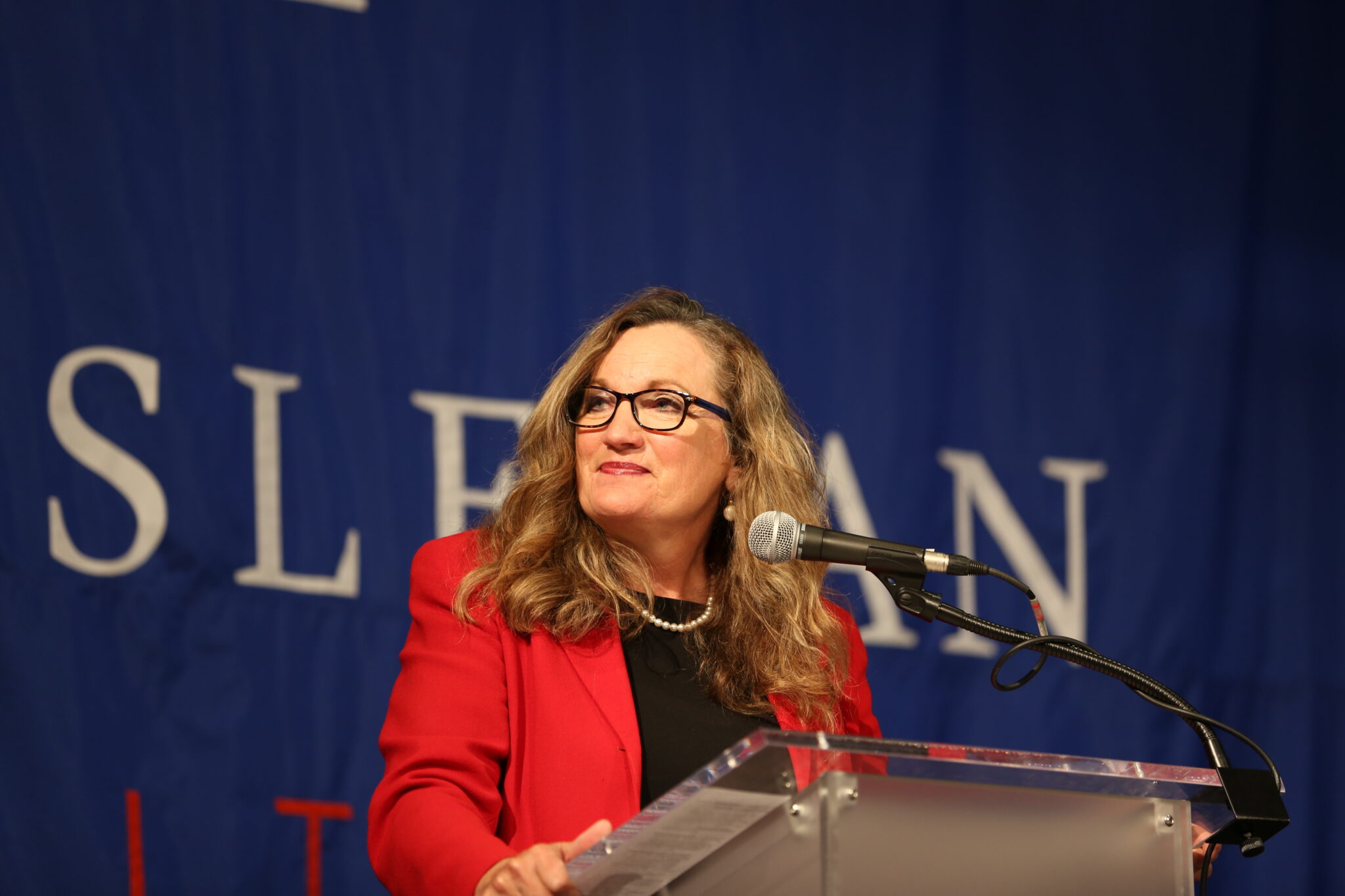
Joshua Haiar, South Dakota Searchlight
A trust controlled by a South Dakota regulator’s relatives still owns land along a proposed pipeline route, but the regulator has not recused herself from the project’s second permit application after recusing herself from the first one.
Two years ago, Public Utilities Commissioner Kristie Fiegen disqualified herself from Summit Carbon Solutions’ first carbon dioxide pipeline application. She cited state law prohibiting commissioners from participating in hearings or proceedings when they have a conflict of interest.
Fiegen wrote a recusal letter in February 2022 that said the pipeline “would cross land owned by my sister-in-law (my husband’s sister) and her husband.” Gov. Kristi Noem assigned State Treasurer Josh Haeder to fill in for Fiegen.
In September 2023, Haeder and the other two commissioners rejected Summit’s initial application, citing the pipeline route’s conflicts with several county ordinances that mandate minimum distances between pipelines and existing features.
Summit reapplied in November 2024 with an adjusted route. Fiegen has not filed a recusal letter in the new application docket, and she participated in a procedural hearing about the application on Dec. 17.
Fiegen did not respond to questions from South Dakota Searchlight about her participation in the new docket.
Public Utilities Commission spokesperson Leah Mohr said “ex parte” rules bar Fiegen from discussing the matter. Those rules prohibit direct communication with commissioners about dockets they’re considering. Mohr also declined to discuss the matter, and declined to discuss how conflicts of interest are defined for commissioners.
The Attorney General’s Office declined to say whether Fiegen’s participation complies with state law, or whether she sought the office’s legal advice.
Defining a conflict of interest
The chapter of state law Fiegen cited in her 2022 recusal is specific to public utilities commissioners, and it leaves conflicts of interest undefined. It merely says “if a commissioner determines” that the commissioner has a conflict, the commissioner should file a recusal letter.
Meanwhile, a 2016 law required the state Board of Internal Control to create a conflict-of-interest policy for use by state agencies.
The policy says officials involved in quasi-judicial actions such as reviewing a permit application must be “disinterested and free from actual bias or an unacceptable risk of actual bias” and must abstain if “a reasonably-minded person could conclude” they are not impartial.
Land owned by Fiegen’s relatives
The $9 billion Summit pipeline would span five states, transporting some of the CO2 captured from the production processes at 57 ethanol plants to underground injection sites in North Dakota. The project would capitalize on federal tax credits that incentivize the prevention of heat-trapping carbon emissions.

The originally proposed pipeline route would have crossed three parcels of land in Minnehaha County owned by Fiegen’s sister-in-law, Jean Fiegen-Ordal, and Fiegen-Ordal’s husband, Jeffrey Ordal, plus another three parcels of land in McCook County owned by the Jeffrey A. Ordal Living Trust, for which the couple serves as trustees.
Summit said it paid $175,000 in total compensation for easements and future crop damages on the land owned by the Ordals or their trust. An easement is an agreement granting access to land.
Summit said $88,000 of the money went to the Ordals. The company did not disclose further details, but public records show the Ordals completed a sale of their Minnehaha County land several months after signing the easement documents in 2022.
The new pipeline route would cross the same parcels of land: the Minnehaha County land that Fiegen’s relatives no longer own, and the McCook County land that the Ordal trust still owns.
